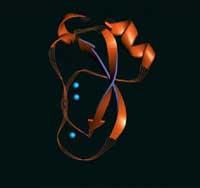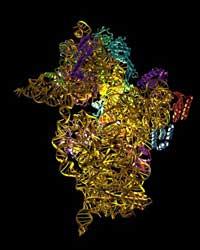The relationship between Alzheimer’s disease and protein deposits has been confirmed
2002/04/04 Orobengoa, Olatz - Elhuyar Zientziaren Komunikazioa

A team of researchers at Harvard University has found that protein accumulation is the direct cause of degenerative diseases such as Alzheimer's and the nervous system. -the protein they have called amyloid is responsible for everything. A small group of these poorly folded proteins is sufficient to prevent the proper functioning of neurons. The sets accumulate in synapses and block synapses between neurons. If synapses are not performed properly, the nervous system does not function properly and there is a high risk of degenerative diseases in the nervous system.
Long ago the researchers knew that in the brain of patients suffering from Alzheimer's disease there were very high amounts of amyloid proteins. But so far, it has not been possible to verify the direct relationship between accumulation and disease.
In addition, the same group of researchers has found an inhibitor of the substance that forces to accumulate proteins. Numerous pharmaceutical companies are already dedicated to the preparation of drugs based on this inhibitor and believe that within five or seven years the drug will be on the market to treat Alzheimer's.

Gai honi buruzko eduki gehiago
Elhuyarrek garatutako teknologia





